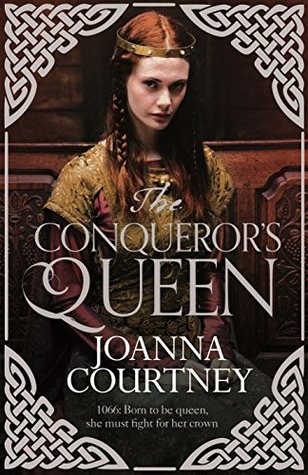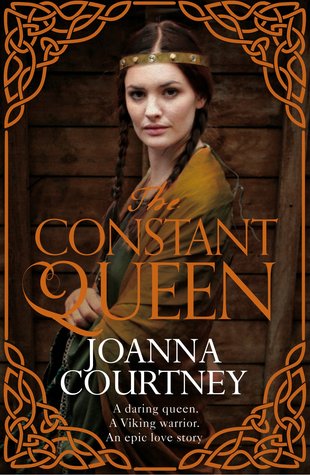
Review of The Conqueror’s Queen, historical fiction by Joanna Courtney based on the life of Mathilda of Flanders, Duchess of Normandy and wife of William the Conqueror.

This post may contain affiliate links, which means I may receive a commission, at no extra cost to you, if you make a purchase through a link. Please see our full disclosure for further information.
Synopsis
Mathilda of Flanders reluctantly accepts her father’s choice of husband for her: William, Duke of Normandy. When she goes to Normandy for her wedding, Mathilda finds a court full of men with very little appreciation of great culture.
Keen to win Mathilda’s heart along with her hand, William vows that one day he will earn England’s throne for her. In 1051, King Edward invites the couple to his court at Westminster for Christmas and promises his throne to them upon his death.
William and Mathilda spend the following years strengthening Normandy together and raising their always increasing family. Then 1066 comes around and King Edward dies. The English seem to have forgotten their promises and crown Harold Godwinson, but William has not forgotten and plans an invasion.
Review
In The Conqueror’s Queen, Joanna Courtney beautifully rounds out her Queens of the Conquest trilogy with a book that’s descriptive and engaging right up to the end. She excels in writing a variety of unique characters each with their own personalities and motives.
It was interesting to see William the Conqueror before he became the Conqueror. I also enjoyed seeing a kinder, more just side of him. History tends to remember William as conniving and merciless. While that part of him isn’t absent, it is tempered by care, devotion, and a desire for loyalty. Overall, the book shows him as a well-rounded personality and makes him easier to empathise with.
I loved the relationship between William and Mathilda; they were such a great couple. While they have some rough patches, their relationship is solid. They obviously respect and trust each other. Mathilda is the perfect partner to help William rule his lands.
There was a bit where William tells Mathilda that he slept with some prostitutes before marrying her so that he would know how to please her. My immediate thought was “Aww, that’s so sweet,” but then I stopped and thought: “is that really aww worthy?” Is it? I can’t decide.
I’m not sure about the inclusion of Judith’s story. In The Constant Queen, the author included Tora’s story. This made sense as Harold had a history with Tora, and the two women’s stories eventually came together. That doesn’t happen with Mathilda and Judith in The Conqueror’s Queen.
Mathilda is a fantastic woman. She’s intelligent, down to earth, and thinks things through before dealing with the situation. While her character starts out young and flighty, she develops realistically and becomes the perfect Duchess of Normandy. I would love to read a book on her life as Queen of England.
Conclusion
Have you read The Conqueror’s Queen? What did you think? Do you agree with what I’ve said about it? Let me know in the comments.


